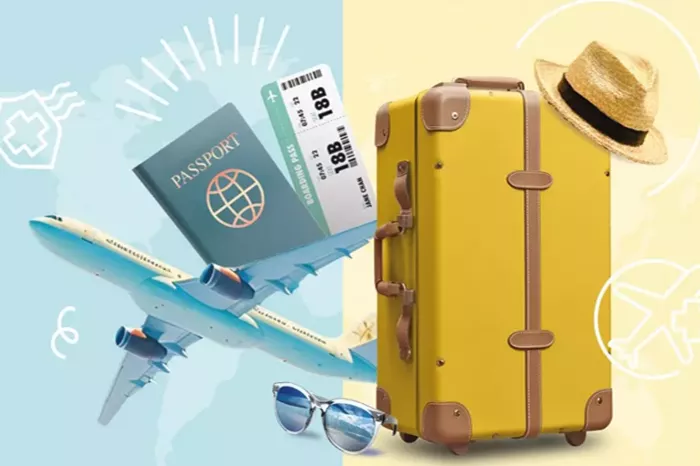Owning an RV is a great way to explore the world on your own terms, with the freedom to travel in comfort and style. However, before you hit the open road, it’s important to think about the right insurance coverage for your recreational vehicle (RV). You might wonder: Do I really need RV insurance?
The short answer is yes. Just like any other vehicle, RVs are subject to various risks, and having the right insurance can protect you from potential financial losses. Whether you’re using your RV for weekend trips or extended road journeys, understanding recreational RV insurance is key to making sure you’re covered in case of an accident, theft, or damage.
This article will help you understand the importance of recreational RV insurance, the types of coverage available, and how to choose the right policy for your needs.
What Is Recreational RV Insurance?
Recreational RV insurance is a specialized type of insurance that provides coverage for recreational vehicles, such as motorhomes, travel trailers, and fifth-wheel trailers. Like other types of vehicle insurance, it offers protection against accidents, theft, vandalism, and natural disasters.
However, RV insurance differs from standard auto insurance in several important ways, since it covers not only the vehicle but also the living space within the RV. Depending on the policy, it can cover damage to both the vehicle and its contents, as well as liability in case of an accident.
Key Differences Between RV Insurance and Regular Car Insurance
Coverage for Living Areas: While standard car insurance covers the vehicle itself, RV insurance includes coverage for the living areas inside the RV, such as the kitchen, bathroom, sleeping area, and personal belongings.
Liability Coverage: RV insurance provides liability coverage in case you’re responsible for an accident, while standard car insurance only covers liability for the vehicle itself.
Comprehensive Coverage: RV insurance also typically includes comprehensive coverage, which protects against non-collision events such as theft, vandalism, and natural disasters. This is especially important for RV owners who use their vehicles as a home away from home.
Do You Really Need RV Insurance?
You might be asking, “Do I really need insurance for my RV?” While the answer depends on your specific situation, it’s highly recommended to have RV insurance for several reasons:
1. Protection Against Accidents
Accidents can happen at any time, whether you’re on the road or parked at a campsite. RVs are large and can be challenging to maneuver, so the risk of a collision is higher compared to regular vehicles. RV insurance provides coverage for both accidents you cause and accidents caused by others.
2. Coverage for Damage or Theft
RVs are expensive, and repairing or replacing one can be costly. RV insurance can help cover the costs if your vehicle is damaged in an accident or stolen. Without insurance, you’d have to pay for repairs or replacement out of pocket, which can be financially devastating.
3. Liability Protection
If you’re involved in an accident and it’s determined that you are at fault, you could be held financially responsible for the damage to other vehicles, property, or even bodily injury. RV insurance provides liability coverage, which can help cover the costs of repairs, medical bills, and legal expenses.
4. Peace of Mind
When you’re traveling in your RV, the last thing you want to worry about is what would happen if something went wrong. Having the right insurance gives you peace of mind, knowing that you’re protected against unexpected events and can focus on enjoying your journey.
What Does RV Insurance Cover?
Recreational RV insurance policies typically offer a variety of coverage options. Depending on the type of coverage you choose, your policy can protect your RV, its contents, and your liability in case of an accident. Here’s a breakdown of the most common types of coverage for RVs:
1. Liability Coverage
Liability coverage is a basic requirement for any vehicle, and it applies to RVs as well. This coverage is essential if you’re involved in an accident and found to be at fault. It can help cover:
Bodily injury: Medical expenses for the other party involved in the accident.
Property damage: Repair costs for any property damaged in the accident, such as another vehicle or a fence.
Liability coverage is usually split into two types: bodily injury liability and property damage liability. Each state has its own minimum requirements for liability coverage, but you can opt for higher coverage limits for additional protection.
2. Collision Coverage
Collision coverage pays for damage to your RV if you collide with another vehicle or object, such as a tree or guardrail. This coverage helps you repair or replace your RV without worrying about how much the damage will cost.
3. Comprehensive Coverage
Comprehensive coverage protects your RV from non-collision incidents, such as:
Theft
Vandalism
Fire
Natural disasters (e.g., hurricanes, tornadoes, hail)
Since RVs are valuable and often used in outdoor environments, comprehensive coverage is important to protect against risks beyond accidents.
4. Uninsured/Underinsured Motorist Coverage
If you’re involved in an accident with someone who doesn’t have enough insurance or no insurance at all, uninsured/underinsured motorist coverage helps cover your damages. This is important if you’re in an accident and the other driver cannot pay for your repairs or medical bills.
5. Medical Payments Coverage
Medical payments coverage, also known as MedPay, helps pay for medical bills resulting from an accident, regardless of who is at fault. This coverage can apply to both you and your passengers. It’s a good option if you don’t have enough health insurance to cover the costs of injuries sustained in an accident.
6. Personal Belongings Coverage
Since RVs often serve as homes on wheels, it’s important to have coverage for your personal belongings inside the RV. Personal belongings coverage helps protect items like clothes, electronics, furniture, and other valuables inside your RV in case of theft or damage.
7. Roadside Assistance
Roadside assistance is an optional coverage that provides services like towing, flat tire repair, jump-starting, and fuel delivery if your RV breaks down while on the road. This coverage can be a lifesaver if you experience mechanical failure far from home.
How Much Does RV Insurance Cost?
The cost of RV insurance varies depending on several factors, including:
The Type of RV: Motorhomes tend to be more expensive to insure than travel trailers or fifth-wheel trailers because they are motorized vehicles.
The Value of the RV: Newer, more expensive RVs will generally have higher premiums.
Coverage Types: More comprehensive coverage options, such as personal belongings coverage and roadside assistance, will increase the cost of your premium.
Usage: If you use your RV frequently or for long trips, the insurance cost may be higher than if you only use it for short weekend getaways.
Driving History: As with other types of insurance, your driving record will impact the cost of your RV insurance. A history of accidents or claims can result in higher premiums.
On average, RV insurance costs anywhere from $1,000 to $3,000 per year. However, the price can vary significantly depending on the factors mentioned above.
How to Choose the Right RV Insurance
Choosing the right RV insurance can be overwhelming, but there are a few steps you can take to make the process easier:
1. Assess Your Needs
Think about how often you’ll be using your RV and how much protection you need. If you plan to live in your RV full-time, you may need a more comprehensive policy that covers both your RV and your personal belongings. If you only use your RV for occasional trips, a more basic policy may suffice.
2. Compare Quotes
Insurance rates can vary between companies, so it’s important to shop around and compare quotes. Look for a policy that offers the coverage you need at a price you can afford. Don’t just go for the cheapest option—make sure the policy provides adequate protection for your RV.
3. Review Your Coverage Options
Consider the types of coverage that are most important to you. For example, if you have valuable items inside your RV, personal belongings coverage may be worth considering. If you travel long distances, roadside assistance may be a must-have.
4. Read the Fine Print
Before signing up for a policy, read the terms and conditions carefully. Make sure you understand what’s covered and what’s not. Some policies may have exclusions or limits on certain types of damage, so it’s important to know what to expect.
Conclusion
Recreational RV insurance is an essential investment for anyone who owns an RV. It provides peace of mind knowing that you’re covered in case of accidents, theft, or damage, and it helps protect both your RV and its contents. Whether you’re using your RV for weekend getaways or as a full-time home, choosing the right insurance policy is crucial for enjoying your travels without worries.
By understanding the types of coverage available, how much insurance costs, and how to choose the right policy, you can ensure that you’re adequately protected on the road. So, before you head out on your next adventure, make sure your RV is covered—because the last thing you want is to be caught off guard in an emergency.
Related topic:
How Do Car Insurance Companies Pay Out Claims




















